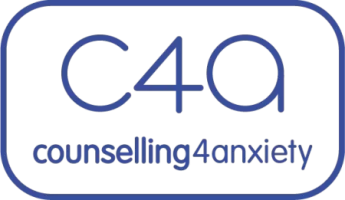One of the things that I repeatedly hear from clients that I work with and who have Obsessive Compulsive Disorder (OCD), is that the thoughts or ruminations that they have are ‘frightening’, ‘upsetting’ and ‘distressing’. There is no doubt that the OCD related thoughts that they have cause them a great deal of distress and individuals think that because they ‘think’ these thoughts, it must be a reflection of who they are.
The pain and distress that many feel brings about a sense of self-stigmatisation, isolation and self-blame, as though there is something that is inherently wrong with individuals who have OCD. The reality is that OCD is a deeply distressing condition and one that is complex, but for many who have OCD, it is not that they are their distressing thoughts. They may think that, but it is essential that therapists make that distinction - a separation between the OCD and the character of the individual.
Let me go back to the point I made that many clients whom I work with and who have OCD naturally believe that because they think something, it is a reflection of who they are. In fact, the opposite is true. In other words, the reason that so many people with OCD feel distress and emotional pain from their OCD related ruminations, is precisely because they are not what their thoughts are. This is something that is essential to bring out in therapy work and which is a start in the therapeutic healing journey. So, for those having thoughts related to moral issues and concerns, the reasons that they are having the intrusive thoughts is precisely because they have a moral fabric and framework. Their OCD ruminations are therefore ego-dystonic and go against who are what they are. When this is brought up in therapy and counselling work, I have seen clients literally give off a sigh of relief and seen them sit back into the sofa as though the tension that they had built up over time has instantaneously eroded.
Let me give you other examples of how OCD related ruminations and thoughts are ego-dystonic. Some of my clients have had the stereotypical ‘OCD-related cleaning’ form of the disorder. The core underlying premise driving their form of OCD has been that they may be responsible for spreading germs or bacteria to others and they must clean certain things in a ritualistic fashion so that they are not responsible for harm to others. I have heard them suggest that they are ‘not good’ and that they may ‘have done bad’ by not cleaning something in a certain way. What they carry - is a form of self-blame that reduces their sense of self, their ego, their self-control and their self-confidence in themselves. It also makes them feel that they are responsible and thereby, bad people.
The fact is that this could not be further from the truth. It is precisely because they have a strong moral framework that causes these individuals distress and the fact that they recognise that they have a strong moral sense of social responsibility, also underpins the fact that they are the least likely to spread germs or bacteria in a wilful or harmful way. Once again, when I have explored this with clients, I have seen how any anxiety has drained away from them towards the end of the session.
In summary, OCD is the root of intrusive thoughts that are the mirror opposite of the values and beliefs of individuals and against what they hold dearly. If anything, this is something that is central to explore right at the start of therapy work.

